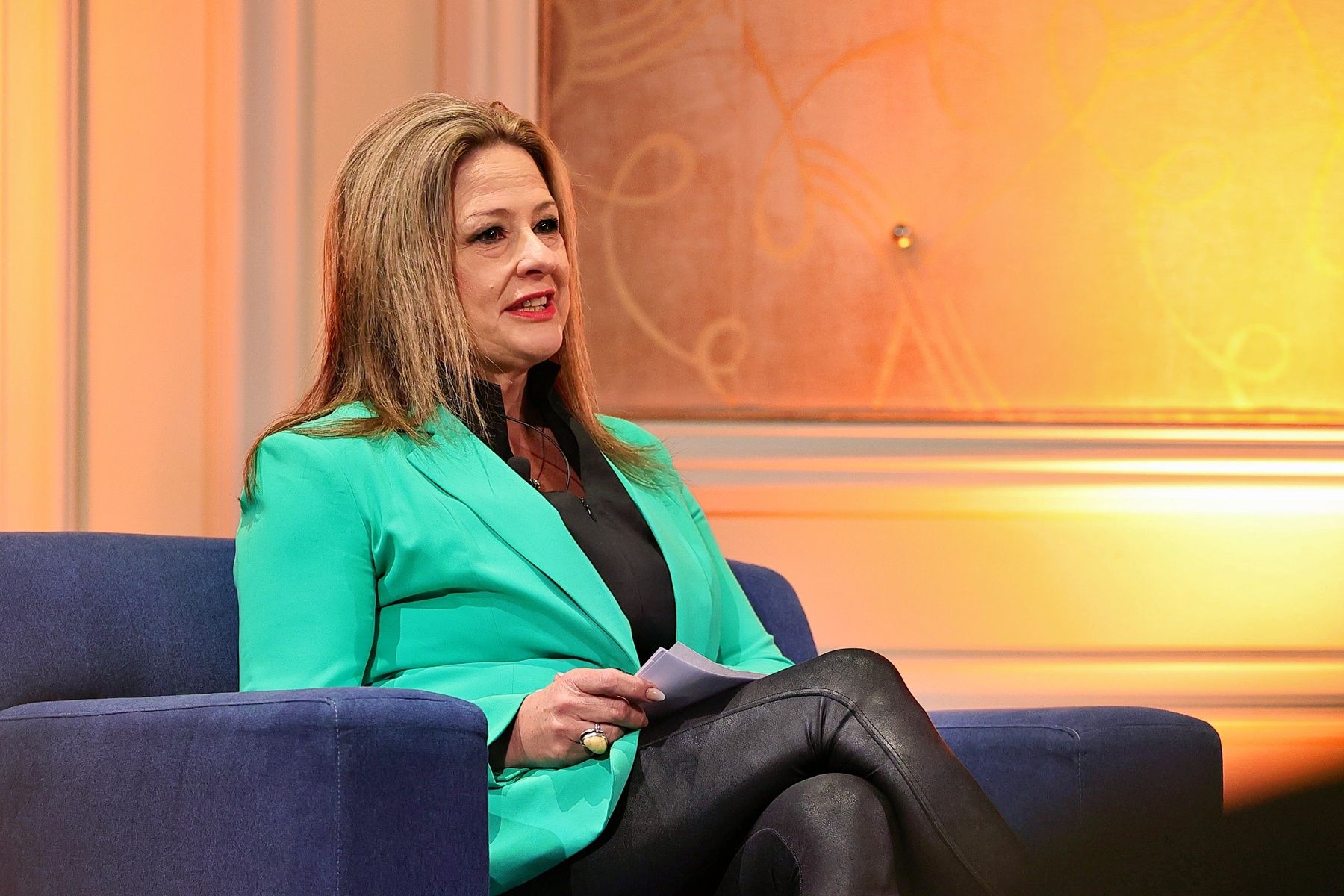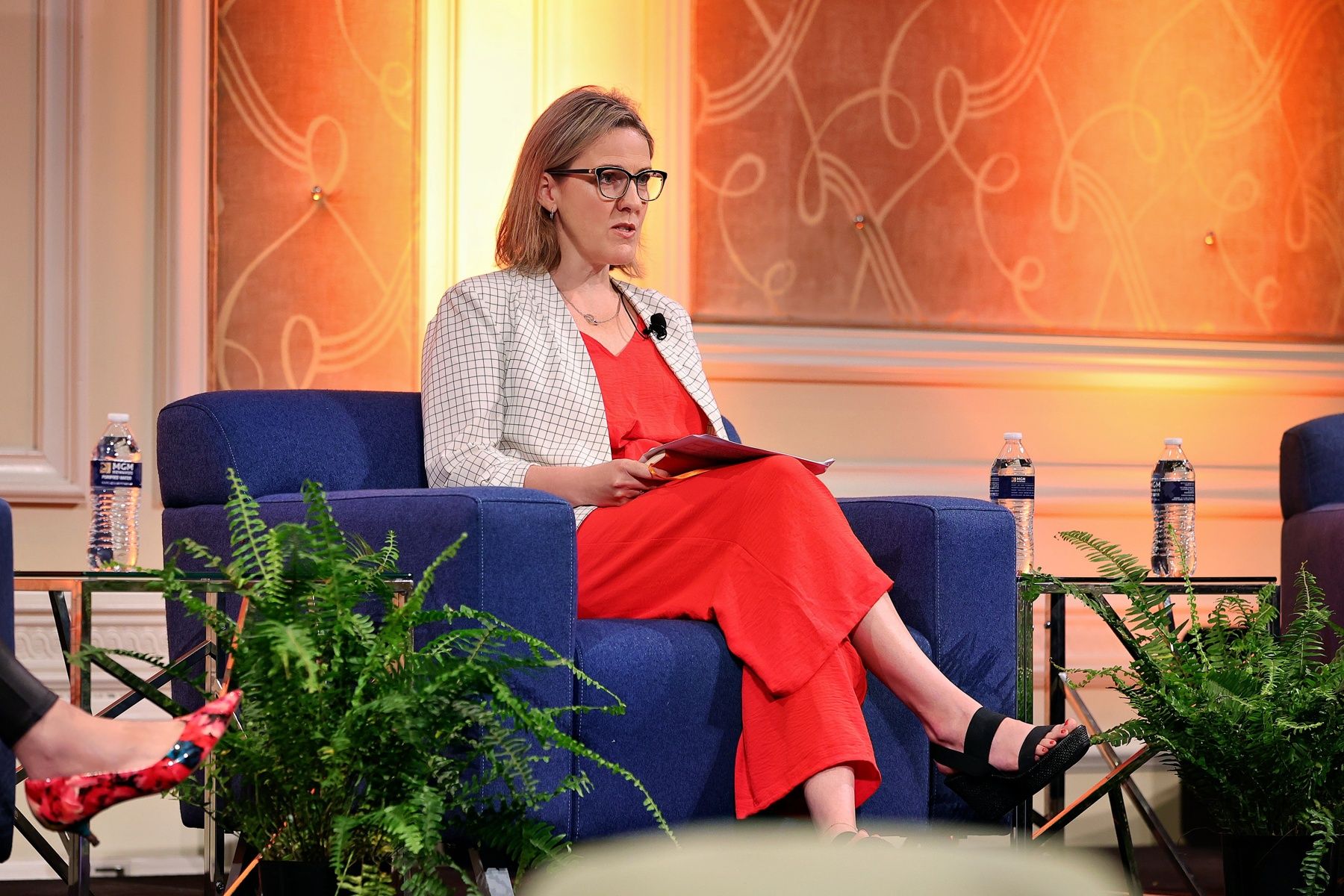When making investments in new technology, Main Squeeze Juice Co. CEO Jennifer Dodd keeps one essential thing in mind: “We can’t forget we’re in the hospitality business.”
No matter how much technology is involved, customers must be at the center.
“I love tech. It’s amazing. And AI has been such an improvement to so much of what we’re doing in our entire life, which, of course, they’re putting in our restaurants,” Dodd said at the Food On Demand Conference session moderated by Laura Michaels of Franchise Times. “But we can’t forget that we’re serving human beings, that they deserve to be treated in a hospitable manner.”
When Main Squeeze is evaluating the potential return on investment with any technology, customer and team member satisfaction are at the forefront. This week, Main Juice rolled out QR codes at its juice coolers to give customers the opportunity to learn more about the fresh-pressed juices and their potential health benefits.

Jennifer Dodd CEO, Main Squeeze Juice Co.
It’s a way to reduce labor challenges, said Dodd. Employees are trained to teach customers about the juice when guests are scanning the cooler. But if they’re busy making a smoothie or helping another customer, the QR codes can help provide a similar experience.
“Every customer was not getting the same experience at that juice cooler,” Dodd said. “It was putting pressure on the speed of service, pressure on the profitability
Previously, ordering kiosks were taking customers on that journey. But, as customers were evaluating the menu to decide what to order, it was taking longer and holding up lines—and a lot of the time customers weren’t aware that education was available, Dodd said.
Calculating a financial return on investment is tough when implementing new technologies, so brands look for other ways to measure a product’s success.
“It’s really important to understand what motivates the restaurant,” said fellow panelist Amber Gadsby, the senior director of digital marketing and ecommerce at Qdoba.
For Gadsby, the most important upgrades are ones that seem basic, but provide solutions for common problems restaurant operators face.

Amber Gadsby, Sr. director of digital marketing & e-commerce at Qdoba
She reflected on her previous career at Domino’s. At a conference full of Domino’s general managers, the pizza giant announced plans for an inventory app.
“That does not sound sexy at all, but it was a standing ovation moment,” Gadsby said. “They are there with a pencil and paper at midnight counting dough balls in the back of the restaurant. It is a thankless job. Being able to take those moments of the least-liked part of your job and alleviate them was a really motivating piece.”
As a franchisor, Qdoba has franchisees who own multiple brands, which Gadsby said acts as “free consulting.” Operators learn what works and doesn’t work at their other restaurants and incorporate those solutions into their Qdoba stores.
“We have regular franchise committees that we leverage for technology, for marketing, for supply chain operations,” Gadsby said. “They’re an important resource for us.”
The eighth annual Food On Demand Conference, which offers insights from key restaurant and foodservice players in mobile ordering, delivery, catering and technology, continues through May 7 at the Bellagio in Las Vegas.


